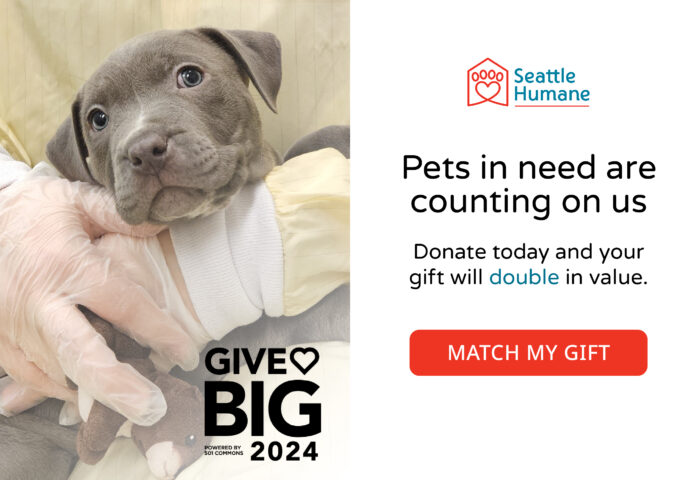
As warm weather approaches so do many pests. There’s nothing worse than losing your garden bounty to a herd of snails or slugs. But before you put out that slug bait, remember that many of these pesticides are made with materials that are irresistible to our pets and wildlife.
If you’re battling slugs, try natural alternatives like copper barriers, food grade Diatomaceous Earth or seaweed to place around the perimeter of your garden or individual pots to prevent slugs from making a meal out of your hard work.
If you must resort to using conventional methods, follow these tips to keep your pets safe:
• Restrict the use of these products only to your garden or potted plants.
• Watch your pet closely while applying bait.
• Keep products in a tightly sealed container and out of your pet’s reach.
• Keep your pets out of the treated areas.
Common houseplant varieties such as azalea, rhododendron, sago palm and lilies are often found in home gardens and can be harmful to pets. Lilies are especially toxic to cats, and can cause life-threatening kidney failure even in small amounts. See more poisonous plants here.

Many fertilizers, including natural brands that use coffee grounds, bone or blood meal, can be toxic to pets and wildlife. The best solution is to not let your pets on the grass or in the garden until the fertilizer has settled. Keep your pets from digging, and also wipe off their paws and underside daily to prevent them from ingesting toxins while grooming themselves.
What To Do If Your Pet Is Poisoned
• Take 30 to 60 seconds to safely collect and have at hand any material involved. This may be of great benefit to your vet, as they determine what poison or poisons are involved. In the event that you need to take your pet to a local veterinarian, be sure to take the product’s container with you. Also, collect in a sealable plastic bag any material your pet may have vomited or chewed.
• If you witness your pet consuming material that you suspect might be toxic, do not hesitate to seek emergency assistance, even if you do not notice any adverse effects. Sometimes, even if poisoned, an animal may appear normal for several hours or for days after the incident.
• Call the Animal Poison Control Center 24 hours a day or your own vet. The telephone number is (888) 426-4435. There is a $65 consultation fee for this service.
Be ready with the following information:
• The species, breed, age, sex, weight and number of animals involved.
• The animal’s symptoms.
• Information regarding the exposure, including the agent (if known), the amount of the agent involved and the time elapsed since the time of exposure or ingestion.
• Have the product container/packaging available for reference.
Please note: If your animal is having seizures, losing consciousness, is unconscious or is having difficulty breathing, telephone ahead and bring your pet immediately to your local veterinarian or emergency veterinary clinic.

